Amnesty explained: Sword of Damocles hangs over heads of tax dodgers
Citizens have few days left to legalise most movable and immovable assets

CREATIVE COMMONS
The government has been making concerted efforts to publicise the benefits of availing its tax amnesty scheme. To some extent, it has succeeded in creating a favourable environment through pragmatic measures, which in turn have led to increased public interest in how to pay taxes and file returns.
'Disclose hidden assets or face imprisonment', FBR warns Pakistani expats in UAE
Government officials have said that the amnesty scheme will not be extended any further. There is also pressure from the IMF, which will be deliberating on the staff-level agreement reached on June 3.
Given the government’s recent focus on collecting data of defaulters, the amnesty scheme was not promoted effectively immediately after the budget or even its announcement a few weeks earlier.
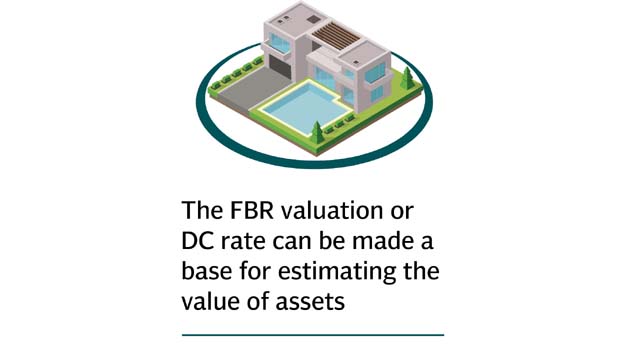
The FBR ran a public relations campaign in which awareness pamphlets and ads relating to the scheme were issued. Chambers of commerce and trade organisations were educated about major and minor details of the scheme, but many people still had questions about the scheme.
The government hopes that the economic issues facing Pakistan can be reduced to some extent by taxing foreign assets acquired using Pakistani income, or transfers of foreign assets to Pakistan.
With this background, the federal cabinet announced the “Assets Declaration Scheme”. Under the scheme, Pakistani citizens including overseas Pakistanis can give legal cover to their assets by paying tax at a special reduced rate until June 30, with the only significant attached string being that elected officials, government employees, and their respective family members cannot avail the scheme.
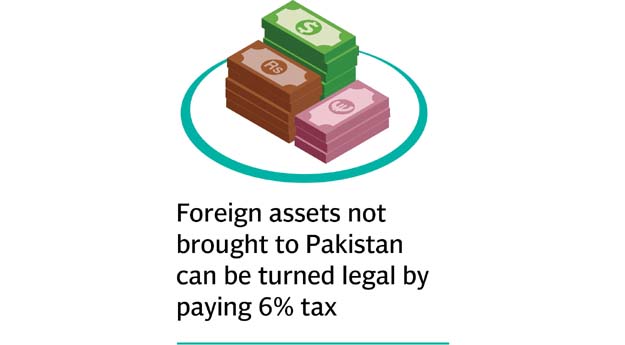
Experts believe that the government introduced the amnesty scheme to increase foreign exchange reserves and reduce the current account deficit, although the government’s stated position is that the objective of the scheme is to develop a ‘taxpaying culture’ and improve documentation of the economy.
While announcing the scheme, PM’s Adviser on Finance Abdul Hafeez Sheikh said that the basic objective of the scheme is not to collect taxes but make the economy more documented.
The object of the scheme is to provide an opportunity for those with undeclared assets to legalise them so they can come into the economic sphere, and the wheels of the economy can move forward.
Amnesty scheme is no NRO, says FBR
Sheikh further said that the objective of the scheme is not to scare anyone, but to provide opportunities to businessmen to become part of the legal economy, and the government has tried to make the scheme feasible and practical.
Prime Minister Imran Khan is also advising people to take full advantage of this scheme. In a short address to the nation on June 21, the PM said, “This is the golden opportunity to you to declare whatever gold, money and benami properties domestically and abroad.” Imran noted that the country is under a huge debt burden because of the corruption of past, and to pay back old loans, we must take on more loans, forcing us to spend half of all government revenue on paying back debts.
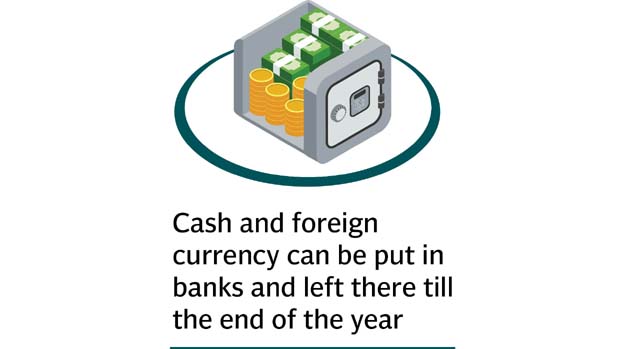
The PM also appealed to citizens to help the government in curbing tax evasion. He said the tax collection target was Rs5.5 trillion, but if the people honestly pay their taxes, collection can easily be as high as Rs8 trillion, which would fix the economic crisis.
To make the tax amnesty scheme successful, the FBR has formed special committees to help create awareness of the possible problems that would be faced by those who do not declare their assets and the benefit of tax amnesty scheme to industrial and trade organisations in big cities.
Meanwhile, the FBR has begun investigating large bank accounts and taking notice of the use of ‘luxuries’ such as foreign and domestic air travel, hotel stays, the sizes of people’s houses, and control of commercial electricity and gas connections. In many cases, people are being asked to prove if their declared income can support their assets and lifestyles.
In addition, to make the amnesty scheme result oriented, the FBR and NADRA have introduced the FBR tax profile system, which has the details of 53 million people’s bank accounts, assets, utility bills, travel details and registered cars. The data was compiled with assistance from NADRA, and anyone can access the database to get information on themselves using their CNIC and mobile number after paying a fee of Rs500.
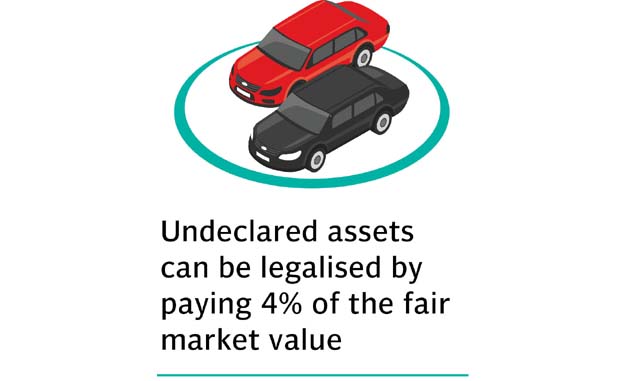
Material for illustrations
According to Assets Declaration Scheme, undeclared assets in Pakistan and abroad can be declared and legalised. Undeclared sales tax, expenses and benami assets can be declared through this scheme.
The amnesty can be applied on proceedings pending or are under consideration under Federal Excise Act 2005 or Sales Tax Act 1990. Matters under consideration in appellate forums and the FBR can also be closed via the scheme.
Public office holders and their families cannot benefit from the amnesty scheme, nor can assets associated with crime. The amnesty is also non-applicable on bearer certificates, shares, bonds and other bearer assets. It is also not applicable on gold and precious stones. Likewise, it cannot be applied on cases under trial in high courts (HC) or the Supreme Court (SC).
For the assets to be declared, valuation will be based on 150% of the FBR valuation rate. Property valuation of 150% of the DC rate will be used in areas where the FBR valuation has not been fixed or the DC valuation is low. Cash and foreign currency can be deposited in bank accounts and left there until the end of the fiscal year under the amnesty scheme. Foreign cash assets will have to be brought and deposited in local bank accounts, invested in Pakistan Banao Certificates or invested in federal government-issued bonds.
If anyone does not want to bring foreign assets to Pakistan, such shares or cash can be sold out and the obtained amount can be declared by depositing it in a foreign bank before June 30, provided that the amount remains in the bank account till June 30, 2019.
According to the Amnesty Scheme, undeclared assets can be legalised by paying 4 per cent of the fair market value. This does not apply to the movable property inside the country. Such properties can be turned legal by paying 1.5 per cent of the cost price. Undeclared sales taxes and federal excise duty dues can be cleared by making a 2 per cent payment.
Similarly, foreign assets not brought to Pakistan can be turned legal by paying a 6 per cent tax. Surcharge will be imposed on the default after June 30, at the rate of 10 per cent from July 1 to September 30, then 20 per cent from October 1 to December 31, 30 per cent from January 1st 2020 to March 31, and 40 per cent surcharge will be imposed on those declaring assets from April 1 to June 30, 2020. Assets, sales, and expenses after declaration and payment of taxes under the amnesty scheme can safely be mentioned in income tax returns and wealth statements.
Published in The Express Tribune, June 26th, 2019.
Like Business on Facebook, follow @TribuneBiz on Twitter to stay informed and join in the conversation.





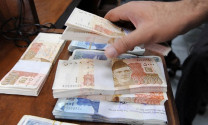












COMMENTS
Comments are moderated and generally will be posted if they are on-topic and not abusive.
For more information, please see our Comments FAQ